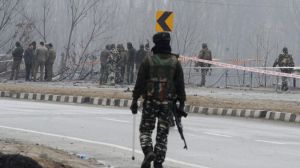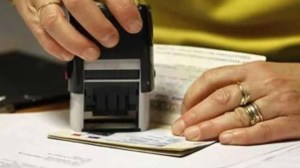Working to close N-deal, UPA fights last-minute jitters from within
With US Under-Secretary of State Nicholas Burns arriving in India on January 19 for talks with his counterpart Shyam Saran, the top UPA lead...

With US Under-Secretary of State Nicholas Burns arriving in India on January 19 for talks with his counterpart Shyam Saran, the top UPA leadership is working overtime to arrive at a political decision to close the July 18 nuclear deal before President George W Bush visits in March.
Hectic behind-the-scene consultations, including with Prime Minister Manmohan Singh, have acquired urgency after Majority Leader in House of Representatives Tom DeLay, a Texas Republican and a staunch supporter of the deal, stepped down following charges of improper campaign funding. One fallout of this has been the cancellation of the January 10 visit of Dennis Hastert, Speaker, House of Representatives. Even Senate Majority Leader Bill Frist, a Republican from Tennessee, has come under a cloud and has only one more year to go.
With key Republican leaders mired in domestic crises, the UPA leadership is aware of the shrinking window of opportunity.
The deal’s groundwork was done during Shyam Saran’s visit to Washington last month when both sides exchanged broad parameters for separation of nuclear-civilian facilities by New Delhi and the one-time India-specific legislation that the US government wants to push through Congress.
However, with the Left and BJP opposing the deal, last-minute doubts have cropped up within the UPA leadership as well. Although the BJP is still to take an official position on the deal, Atal Behari Vajpayee’s key aide Brajesh Mishra, who is not in the party, is driving the opposition against separation. This despite the fact that the NDA government was working towards the same separation when in power to clinch a deal with Washington.
The Indian nuclear establishment, used to secrecy and resentful of scrutiny, is also said to be dragging its feet.
But efforts are on at the highest levels to clinch the deal with diplomats briefing the leadership on the need to clinch the agreement during Bush’s visit.
It is being impressed on the leadership that it is an uphill task for even the US to push the agreement through the Congress given the intense lobbying done by Pakistan.
The US President will visit India for three days in the first week of March as New Delhi was not in favour of Bush arriving in New Delhi on Budget Day.
The details of Bush’s visit were discussed at a meeting taken by his Chief of Staff Andrew Card on January 6. Bush flies to Pakistan from India for a day-tour after visiting Hyderabad.
Photos





- 01
- 02
- 03
- 04
- 05


























